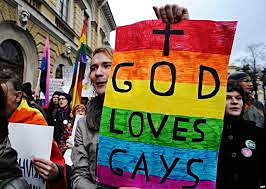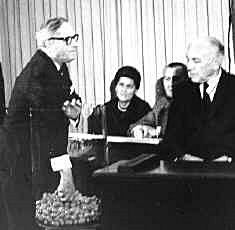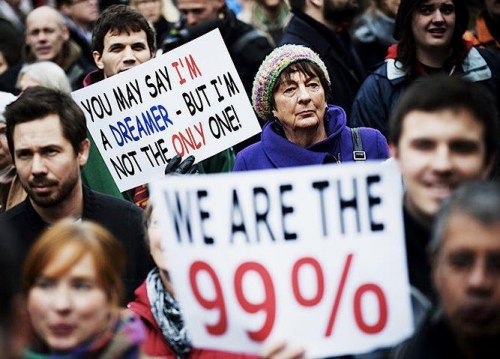As many of you know I struggle with the current trends in our democracies, everything from the personhood of companies to the tax avoidance of individual and multinational corporations. In a recent blog, Democracy, Oligarchy and a Manifesto for Resistance, I wrestled with the question of why we are so passive and looked at ways we could resist the changes taking place before our eyes.
Popular Resistance: Daily Movements News and Resources has published The Spanish Social Movement release of A Charter for Democracy. Popular Resistance says:
Unsurprisingly, the Movement is hard to define. It clearly targets the political arena without desiring to become a political party itself. Their “Charter for Democracy” is an inspiring, thorough text on what politics should be. It proposes a politics for the people: squarely grounded in environmental realities and social justice, based on the Commons, defended from corporate interests and neo-liberal dictates. The Charter was written collectively through nearly 30 different workshops throughout Spain held over the span of a year, with the collaboration of some 200 individuals.
Popular Resistance also says:
The Charter can only make sense when shared widely, so it can stir extensive debate. If you find it interesting, we ask you to share it on Social Media, send it by email or get it into people’s hands in a thousand different ways. We ask you to comment on it, debate it, refute and if you like it, make it yours.”
So in that spirit, I have copied the charter in my blog. Feel free to share it if you find it interesting. It is a long document but worth reading. And while you certainly may not agree with everything it says, it may, nonetheless, stir thoughts.
(To go directly to the charter click on the link: Popular Resistance.)
Dale Rominger
A Charter for Democracy
This Charter was born of a deep malaise: lack of prospects, mass unemployment, cuts in social rights and benefits, evictions, political and financial corruption, dismantling of public services. It was drafted in reaction to the social majority’s growing lack of confidence in the promises of a political system devoid of legitimacy and the ability to listen.
The two-party system, widespread corruption, the financial dictatorship imposed by austerity policies and the destruction of public goods have dealt the final blow to a democracy long suffering from its own limits. These limits were already present in the 1978 Constitution. They can be summarized as a political framework that neither protects society from the concentration of power in the hands of the financial groups, nor from the consolidation of a non-representative political class. This political framework has established a system which is hardly open to citizen participation, and unable to construct a new system of collective rights for our protection and common development. This is evident in the fact that, despite some very significant public demonstrations, the demands of the vast majority of the population have repeatedly been ignored.
Faced with this institutional stonewalling and the growing separation between the rulers and the ruled, it seems there’s only one way out: a deep expansion of democracy based on citizen control over political and economic power. Surely, since what’s left of democracy is constantly shrinking and attempts at internal reform would only mean repeating the same mistakes, we must take a chance on changing the rules of the game – a democratic change, geared toward returning to society the effective decision-making ability over all which concerns it.
Chaos and dictatorship are not the only alternatives to the current democracy. A democracy created among all people is possible – a democracy not reduced to merely voting, but founded on participation, citizen control and equal rights.
This Charter emerged from the desire to contribute to this process of democratization. In this sense, it contributes from a place of joy, from the energy of citizen mobilizations, from politics happening outside political parties, speaking in first person plural and trying to build a life worth living for everyone. No doubt the impetus is democracy itself. People have the ability to invent other forms of governing themselves and living together. This text was created with the assurance that today’s struggles are the basis of the coming democracy.
As this is a proposal of democratization, this Charter is presented as an unfinished, long-term construction project, openly inviting anyone to participate. This charter isn’t meant to be a political program or an exhaustive catalogue of rights, nor does it pretend to be a static State model. Given our investment in democratization, it simply points towards the basic, necessary elements needed to reconstruct a new institutional model that is open to the collective needs, proposals and capacity for self-governance that has recently found its voice throughout streets, squares and networks. Seen this way, the participative, deliberative process we yearn for matters as much as its content, which should always be a faithful reflection of the proposals and aspirations of the citizenry.
In essence, this Charter calls for opening a new process of debate, leading to a political and economic restructuring to guarantee life, dignity and democracy. It’s presented here as a contribution towards establishing a new social contract, a process of democratic reform in which the people — the “anyones”— are the true protagonists.
It’s time for the citizens to appropriate public institutions and resources, in order to ensure their defense, control and fair distribution. In the public squares and networks, we’ve learned something simple and conclusive which will forever change our way of being in the world. We’ve learned that yes, we can.
Rights and Guarantees
A democracy worthy of the name requires universal recognition of a wide constellation of rights related to all areas of public life and social reproduction. The decline in access to benefits and social services, the plundering by the financial dictatorship, and the dismantling of public welfare systems by austerity policies in recent decades have all significantly undermined the means of effectively exercising these rights. Similarly, access to many of these rights is conditional upon nationality and employment status, which has ended up producing major exclusion. Moreover, the subordinate nature of social rights in the current Constitution has not allowed sufficient development of certain fundamental issues such as housing, employment and income.
In short, both the inherent limits of the current system and the impotence of the Spanish political regime in protecting the most basic of rights are strong enough reasons for the creation of a new institutional system of rights and guarantees that enable caring, the development of our lives, and access to political life.
This Charter puts forward a common starting point for defining a new system of rights. Today, these rights have arisen from the demands and struggles of society itself, and expressed through its multiple forms of organization and participation; as such they are the highest expression of the act of democracy.
These rights redefine social relations, the production and distribution of wealth, and relations between nation-states according to a concept of the human being as a subject with the right to autonomy, but still in deep interdependence with the common space s/he inhabits. To this extent, these rights oppose being characterized as merely individual attributions. These rights must be recognized from both a universal as well as a singular dimension.
In order to guarantee these rights, we require an institutional framework that recognizes and promotes access to an active and democratic political life, and the recognition of the right to collective and direct participation as a real opportunity for the expression of the citizens’ desire to decide on everything which significantly affects the community. This framework should also be fully inclusive; one that accepts that we live in a global world, and acknowledges people’s right to migrate and/or settle where they see fit, in order to live life fully. A framework that could safeguard a life – our own – which, being interdependent, requires protection. This would comprise institutions specifically designed to ensure social reproduction, while neither delegating care labor to particular social groups nor permitting the privatization of that labor. A framework which also guarantees and extends all the rights already recognized in existing frameworks, constitutions and declarations of human rights, and which also recognizes the environment wherein life takes place as a rights-holder that should be carefully defended. This framework must, in the end, recognize society as a source of rights, therefore it must be considered open and under constant construction.
The basic principles which inspire a new, robust Bill of Rights with a guarantee of institutional means are:
Universality. All residents will have the same consideration and access to resources that guarantee the effective exercise of their rights.
Singularity: Recognizing that there are realities, forms of organization and a diversity of needs, different types of rights must be taken into account, including specific forms of recognition as well as human resources and economic requirements, to the extent that we must preserve such diversity.
No regression. Public authorities are not entitled, once these rights are recognized, to interpret them restrictively or to reduce them.
Equality. Given that all rights — civil, political and social — are fundamental to the development of people’s lives, the relationship among them must be protected and cared for with the same constitutional and legal guarantees.
Multi-institutional and democratic guarantee. Rights should not only be guaranteed by jurisdictional means but also through citizen participation and extra‑institutional organisms created by the persons entitled to the rights themselves. The social participation in the recognition, extension and guarantee of rights through the institutions of direct election and citizen intervention procedures must be explicitly admitted.
Financial sufficiency. The development of these rights must be ensured with the necessary economic means. These means will be provided by fiscal reform measures established in the following paragraphs of this Charter.
Finally, it is understood that a subject of rights is also a subject of responsibilities, insofar as she or he is part of a community built around a common project. These responsibilities extend to the environment we inhabit, and include accepting the responsibility to care for it, protect it and enable its reproduction, and in doing so, our own. Such responsibility involves all citizens, but is distributed according to the differences of wealth and ability.
Political Democracy
The crisis has shown that the decisions of the political class are increasingly controlled by financial interests, and therefore, that democratic Government is conditioned by private enterprise. This situation has lasting repercussions, having provoked a major crisis of legitimacy and representation, aggravated by a state of continued corruption and underscoring the serious lack of existing democratic control.
In any case, the limits of the political system are not recent; rather, they’re structural. These problems can be summed up as: bipartisanship; one-party government in most autonomous communities; difficulty creating new political options; media monopolies; and, especially, the enormous legal difficulties in reforming a Constitution which, moreover, has never been approved by most of the current population.
This is compounded by the fact that political parties – the major players in political life – have turned into a self-serving class, primarily geared towards its own propagation. Without a doubt, institutional obstacles to direct participation hamper the imagination and formation of a political framework founded upon the direct involvement of ordinary people in public affairs.
The decline of the current democracy manifests itself in neglecting the demands of different sectors of society, thus magnifying the distance between legislated policies and what the people say they need. This growing gap between the rulers and the ruled results in the democratic deficit of a system that has prioritized governability over representation and respect for minorities.The limits of the current democratic system cannot be resolved from the same position from which they arose. Therefore, in order to establish a true democracy, an overhaul is needed.
This Charter advocates a form of democracy capable of returning decision-making power concerning the fundamental aspects of life back to the population. A democracy based on participation in social and political life, one which enables joint decisions on how we want to live. It is, therefore, a wager on a new political agreement built in an open way and with the active participation of citizens. A new agreement based on the recognition of society’s capacity to organize, create institutions, and self-govern.
The construction of this democracy requires a series of agile, effective, and transparent mechanisms articulated on different levels and geared towards both deepening direct participation and the control of delegation, via representation, as deemed appropriate.
Some actions that could give shape to a new democratic political system are as follows:
1. Democratization of public authorities
- Control of representation. Revocable mandates by a social majority and absolute transparency both in public accounts and the actions of the various organs of Government. Tightening of controls and penalties related to corruption, and the development of independent supervisory authorities with competence over different public institutions. Economic and temporal limits on political appointments: salary caps; an incompatibility regime before, during and after the appointment; and effective limits on the duration of the mandate.
- Democratization of the internal functioning of the parties. Transparency in party financing, clearly democratic internal statutes, and autonomy of the vote of representatives to ensure the internal plurality of organizations.
- Reform of the electoral representation system. Removing privileges accorded to parties in the assignation of representatives; modification of lists system; eliminating minimum quota of proportionality; mechanisms of recognition and respect of minorities, as well as balance between the different territories.
- These mechanisms for democratization, openness and citizen control will be extended to other areas of collective representation, such as social and labor organizations, as well as the media, given their relevance in public life.
2. Recognition and extension of the ways of participation and direct democracy
- Recognition and expansion of direct democracy tools, such as popular legislative initiatives, referendums and virtual tools of participation.
- Recognition of citizen control instruments on all areas of the main branches of government, as well as on public accounts. The recognition of such instruments requires transparency laws and the development of flexible mechanisms for public hearing. Recognition of other social organizations acting as control mechanisms or political representatives.
- Developing mechanisms for collective deliberation: Favoring the development of methodologies for democratic deliberation, both virtual and analog, that promote shared decision making. These mechanisms will be essential in the development of new legislations and their budgets.
- Extension of the mechanisms enabling direct participation at all administrative levels, and management of public goods and common assets such as school boards, health councils, labor councils as well as local, regional and inter-regional councils.
3. Recognition of popular constituent power as the ultimate source of the constitution and the powers of the State
- Promotion of a model of open constitutionalism which allows reformation of constitutional standards from below, prevents foreseeable constitutional stonewalling, enables citizen reform initiatives and promotes permanent deliberation.
- The autonomous, independent forging of institutions for the self-regulation and development of rights generated by the social structure itself will be recognized and favored.
A mature political democracy will not only allow for the real and effective separation of the different powers of the state, but also for direct citizen control of the latter. According to this charter, the judiciary, state police, and security forces will also be subject to the same requisites of transparency, democratization and citizen control. Its ranking heads shall not be chosen by political representatives but directly by the citizenry itself.
Economic Democracy
A democratic society cannot be conceived without the guarantee of the necessary material support for the development of a dignified and politically active life. A democratic society without a fairer distribution of wealth cannot be conceived.
The high unemployment figures, the widespread insecurity, the spiral of evictions, the debt slavery condemning a large part of the population, the privatization of public services, the enormous concentration of wealth and the subordination of public economies to banking interests, all point in the opposite direction: inequality and economic subordination of the many (99%) to a few (1%).
The current democracy as well as the constitutional guarantees on which it is based have been completely ineffective in avoiding this situation. None of the mechanisms set out in the Constitution of 1978 – social rights, labor rights, public initiatives in the economic sphere and the subordination of the wealth to the social interest, among others – have been able to protect society from economic and financial interests. Neo-liberal policies have prevailed above any other criteria, including the common good. This despoilment is most evident now, in the midst of the crisis.
This Charter intends to recover the social resources which have been privatized and concentrated into a few hands, in order to make them available for a real democratic process. Thus, the framework proposed by austerity politics will not be accepted. Never before has there been so much wealth, but rarely has this been distributed so poorly and under such undemocratic and unfair criteria. Therefore, a full review of the functions of economic policies is required, in order to prioritize of the welfare of the population over private, financial and corporate profit. A real, and not just formal, recognition that the laws of the market must always be subsumed to the social functions of the economy is essential.
With the aim of promoting economic democracy, this charter considers five basic pillars:
1. Financial democracy
Financial wealth will be considered as a common resource, upon which the citizenship must have the capacity and ability to influence. “Who regulates are the people, not the market” is the maxim that inspired this point. To do so, procedures will be established for democratic decision making on the debt contracted during recent years, as well as on financial and real estate assets in public hands derived from the restructuring of financial markets and the banking sector. To this end, the following measures are proposed:
- Citizen Debt Audit. This proposal allows distinction between those debts which are legitimate and those which are not. This audit will be articulated as a social process of democratic and financial education, whereby citizens may acquire greater capacity for decision making and control over the financial economy.
- Creation of public utility institutions, with financial and real estate assets resulting from successive restructuring. These institutions, under strict democratic control, will serve the promotion of economic equality and social development.
2. Tax reform
The object of the reform entails the promotion of a broad redistribution of expenditures and benefits, so that a formal equality is also a guaranteed real material equitability with access to common and public goods.
- Major proposals: the restoration of the principles of proportionality and escalation for both labor income and corporate profits; the implementation of new taxes on financial transactions and higher taxes on capital income; the decrease of 220 indirect and consumption taxes, and prosecution of tax fraud. Tax reform will be based on a criteria of equality and equal tax treatment, as well as territorial solidarity.
3. Common and public goods
Privatization processes have shown that public administrations have not protected public resources against attempts at appropriation by private interests. The social recovery of these goods, as well as the democratization of their management, must guarantee their accessibility by the population as a whole.
- All goods and basic infrastructure needed for the reproduction of life, political participation and the normal function of the economy will have the status of public-common goods. These public-common goods shall include: education, health, housing, security, transportation, information, and justice; important natural resources including water, atmosphere, soil, oceans, coasts, rivers and riverbanks, forests and natural areas of ecological and aesthetic importance; and major roads, highways, interchanges, railway infrastructure, ports, and the like.
- Strategic resources and sectors of the economy, such as communications, energy, or mineral resources, will be reverted to a condition of public–common resources. The administration of those resources will be subject to a strict public and democratic control. This will effectively reverse the tendency towards privatization that has been promoted in the last decades.
- Public-common assets shall neither be alienated nor sold by public administrations. Being public-common property, they are considered the property of all persons residing in the Spanish State.
- Public-common assets shall be managed in a democratic way, regulated and governed both by mechanisms of citizen participation and expert communities required for each case.
4. Promotion of the Social Economy and Democracy in Economic Relations
This Charter promotes citizen participation in business-related decision-making processes, especially in matters which could be crucial to the common interest. In addition, economic activity will be subordinated to criteria of integral profitability, i.e. social, environmental and economic.
- It encourages the development of a new business model based on the principles of the social economy, cooperativism, and respect for the environment.
- All companies should progressively organize around the following principles: equity, respect for the environment, transparency, and sustainable development. Equally, controls over wage distribution in companies will be observed, forestalling the present model of speculative accumulation and extravagant salaries, while rigorously vetoing the increase of precarious labor.
- The fundamental principles of labor rights will be observed: the right to work freely or in exchange for just compensation; the protection of workers in situations of dependence; the right to rest and to retire; the right to autonomy and to dignified lives independent of wage labor, along with the right to strike, to form unions and to freely associate and assemble.
5. The expansion of social protection, the recognition of common resources, and the right to a dignified life
Our current system of Social Security is principally funded by income tax contributions and is only inclusive according to criteria of national legal identity. In a globalised context, where employment is scarce and non-remunerated work is seen as essential to the production of wealth, migration has become an elemental necessity for an impoverished population. As such, the prior bases of our system of social protection have proven to be increasingly inefficient and less inclusive.
An expansion of the pension system to comply with just and sufficient standards is required. Another requirement is an expansion of the support mechanisms and infrastructures for collective caretaking, which presently falls almost exclusively on families (particularly, women). Child-rearing duties are a collective responsibility with the following two requirements: the necessary budgetary development and allocation, and the creation of common infrastructures.
The production of non-GDP quantified wealth (in areas such as research, study, cultural, informational or communicative production) shall also be acknowledged through mechanisms for the recognition of all such non-remunerated wealth (such as a Basic Income), along with the creation of all the necessary infrastructures for the development of such mechanisms.
This new system of guarantees will be financed by the proposed measures for fiscal reform, especially through the taxation of financial profit and its circulation, while also reducing the proportion of income tax.
Territorial Democracy
The current financial and economic crisis has shown the weakening of democracy at every level, as well as the fragility of territorial wealth-sharing mechanisms. The dictates of financial governance through austerity policies have established an extraordinary geography of inequality, plunging some countries and regions into the economic and social abyss.
The result is an important territorial split opening up both at the European level and in the Spanish state. In Europe, the absence of democratic intervention mechanisms and the crisis of sovereign debt has created a growing rift between a protected center and an increasingly impoverished periphery. In the Spanish state, the heavy indebtedness of municipalities and regions is leading to the dismantling of social protection systems and the sale of many public goods.
Both cases show a growing loss of territorial solidarity and the legitimacy of government institutions. This threatens a collapse that can only be addressed through a complete institutional reorganization based on democracy and territorial stewardship.
This charter invites discussion for a new territorial agreement at all levels, based on a radically democratic model. It is based on the assumption that decisions about the management of resources and services should be developed at the minimum level of territorial unit, and forms of distribution of wealth must be organized within the larger Commons to ensure equity between the territories.
In this way, it is intended to minimize the inequalities between them, compensating for the inequalities generated by models of territorial jurisdiction.
The new territorial agreement model shall be the result of democratic consultation and cooperation among the various territorial units. It should acknowledge the widest possible plurality, and build itself up from its residents’ right to democratically decide on their belonging or not to the different territorial units.
Territorial Democracy will be based on the following principles.
- Joint responsibility and equality. Membership in the political association involves the acceptance of certain rules and communal constitutions, as well as the acceptance of a taxation system and a communal budget sufficient to correct social and territorial inequality. The new tax system shall be based on progressiveness and fiscal equity.
- Subsidiarity. The management of resources and services as well as decisions on matters of public interest must be reduced to the minimum territorial unit in which it is most accessible to those residents responsible for such management or decisions. All services that can be better managed at smaller territorial scales will be managed at this level.
- Financial autonomy and sufficiency. Each territorial unit must have an appropriate budget for the provision of those services for which it is responsible. This budget will be autonomously administered by the democratically managed citizen organisms established for this purpose. Moreover, this budget will not only be guaranteed by its binding resources, but additionally by territorial compensation mechanisms established at different territorial scales. Autonomy in the management of said budget does not exempt those territorial units from the provision of certain services and fiscal obligations to the supra-territorial treasury.
The institutional development of the different territorial scales will be carried out starting from the following principles:
1. Deepening of political democracy: self-government
To reclaim and develop all areas of participation and decision at every scale, building on the aforementioned formulas: the democratization of public powers and the extension of citizen participation and direct democracy mechanisms.
In accordance with the subsidiarity principle there shall be an inclination, whenever the scale of the processes and resources involved allow, toward developing local and direct democracy at a scale closest to the people, i.e., local governments and towns.
The democratic re-founding process is proposed not only at the Spanish State level, but also for the rest of the territorial scales.
2. Acknowledgement of the different scales and territorial realities and solidarity among them
The forms of political union which may result from these democratization processes shall take as their aim the rejection of the current forms of territorial competition, as well as wealth redistribution at all levels; from the supra state levels, to those which are immediate to people, such as townships.
European Union. The establishment of real fiscal, budgetary and banking cohesion directed at the practical elimination of the growing economic and social inequalities between countries, as well as of the controlling interests of the financial sector.
The Spanish State, the current autonomous communities and whichever territorial entities that shall arise from the territorial constitution processes. The principle of fiscal equity shall be accepted, the existence of a joint budget, and the wealth redistribution according to the equitable methods of the territorial distribution.
Municipalities. Financing and budgets, besides being subject to strict citizen control, will be guaranteed by distributive mechanisms accorded at the highest scales (regional, state-level and European Union) so as not to be dependent on property and land speculation.
3. The European scale of the process
In the European sphere, a new constitution shall guarantee all the fundamental rights for every part of the Union, the political participation possibilities, the share-out conditions and the distribution of wealth, and a thoroughly democratic political structure.
In the case that these minimums would not be guaranteed by the European Union, the various comprising territories could develop new territorial alliances from their own constituent political processes, in order to guarantee the previously mentioned principles and therefore their own collective survival.
“A Charter for Democracy” was translated by Jaron Rowan, Jaime Palomera, Lucía Lara, Lotta, Diego and Stacco Troncoso, and edited by Jane Loes Lipton of Guerrilla Translation! The original text was published at MovimientoDemocracia.net.
 Sunday, September 21, 2014 at 7:41PM
Sunday, September 21, 2014 at 7:41PM Interestingly, given the context we all know what “frack” means, what “What the frack” is saying. The word frack points directly and unambiguously to the word fuck and embraces the full meaning of that word. And yet, we will never here Howard Wolowitz say “What the fuck” on The Big Bang Theory. The writers use frack to say fuck without offending anyone. It’s almost as if it is the actually hearing of the word fuck spoken or seeing the word on paper or screen that is offensive. Of course, by using frack, even though everyone knows what is really being said, the impact of the word fuck is eliminated, as is also true in my use of the substitute “bush” for fuck in Alien Love. Even though I explicitly say “bush” is “fuck” the use of the word bush offends no one (well, perhaps some Republicans but I suspect no one else). So why did I use fuck instead of frack in The Woman in White Marble? For the impact, of course.
















